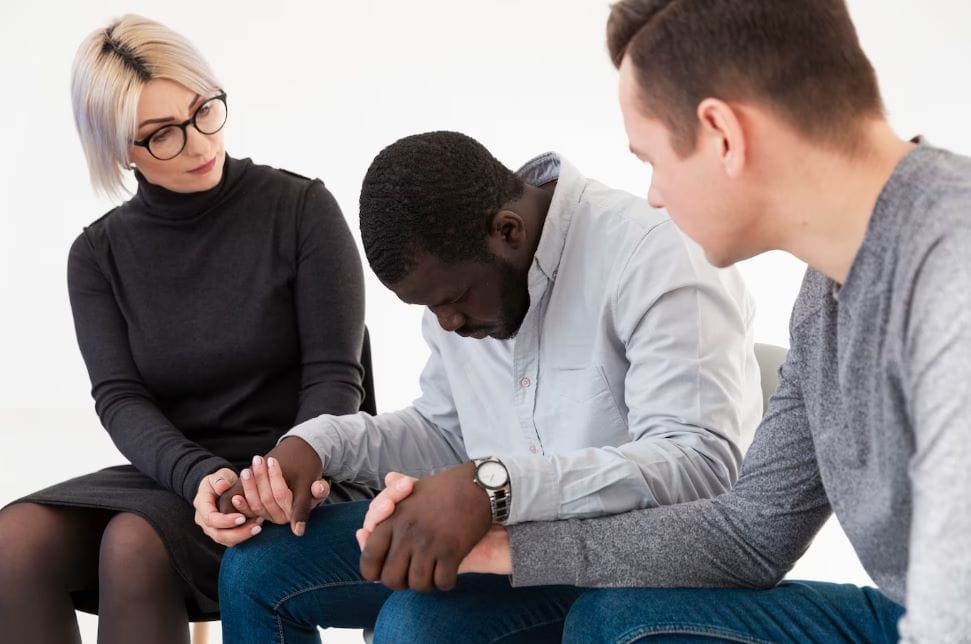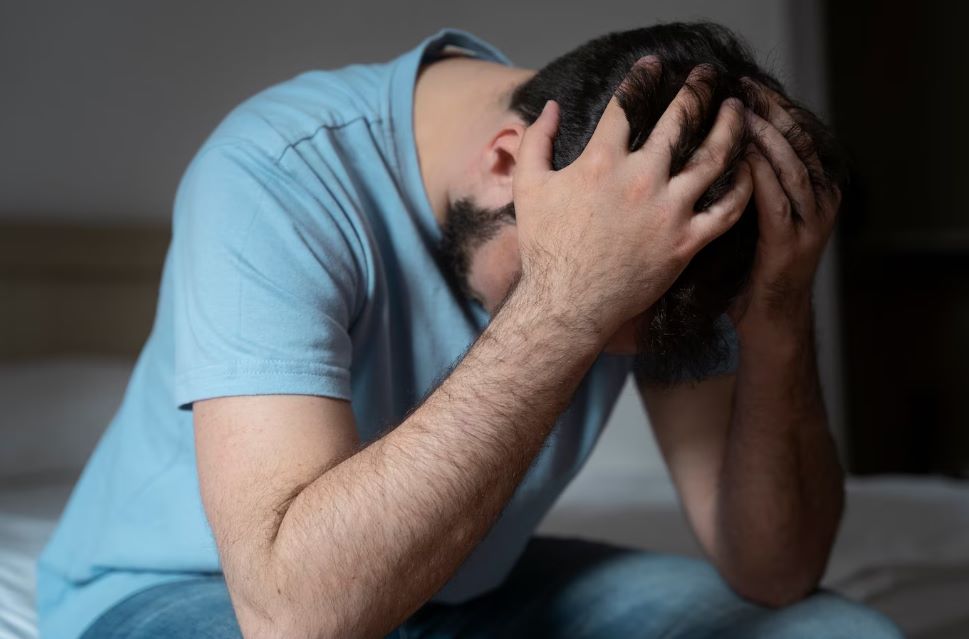A relapse is when a medical problem that has been getting better gets worse again. In the case of addiction, it means that a person goes back to doing what made them addicted after a period of not doing it.
If you slip up again, you may feel like you've failed. You might feel like you've let down the people you care about. You might find it hard to get back on track if you think that relapsing indicates that recovery and staying sober are not for you.
After a relapse, you might feel like you have no hope or can't get better. You might feel like no one else has the same problems or comprehends what you go through when you are addicted or have relapsed. Remember, just like when you first went to treatment, you met other people struggling with addiction.
After a relapse, be easy on yourself. This will help you get back on track. Remember that being sober for a long time is a process, not a goal. Setbacks are a normal part of any long-term plan.
Try this relapse to learn; make sure your plan to stop relapses is clear, and figure out what sets you off. Getting to the bottom of why you relapsed will lay the groundwork for a recovery that will help you come back stronger than ever.
What to Do When Someone You Care Relapses
Seeing a loved one slip back into old habits can be heartbreaking. It's normal to feel a lot of different things at once. You might be mad, sad, scared, and angry. You thought your family was done with this, but here you are again. Relapse is common, but it doesn't mean your loved one will always be addicted.
There are things you can do to deal with and get help if you or a person you know has a relapse.

Don't Criticise or Shame Them.
The person who's relapsed is probably already feeling very ashamed. Adding to that won't help at all. The abstinence infringement effect is something that people who relapse may feel. This is the clinical term for when a person feels so much shame, guilt, and failure after relapsing that they might as well give up and return to active addiction. Adding more shame or blame might make your loved one feel even worse.
Concentrating on the fact that substance abuse is a disease that disrupts the brain can help you feel compassion in situations where frustration and rage are normal first reactions. If you've never dealt with addiction, it's hard to understand how strongly drugs and alcohol can take over the brain, making it very hard to stop using them. It's not just about having the will to do it.
Get Medical Attention
Because people who lack tolerance for a drug are more likely to overdose on it if they use it again. If they show signs of an overdose, call 911 and have them taken to the emergency room right away.
Keep Healthy Boundaries
It's hard to watch a loved one battle with addiction. When someone slips up, it may feel like kicking them when they're down to stick to your rules, but that's not the case. There is a difference between helping and letting someone do something. This is the most important thing to do if a person slips back into old habits.
Keeping proper limits right now could make the difference between getting the help they need for drug abuse or falling deeper into a relapse. With boundaries, the main message is that you love and support them, but you won't let them do things that hurt themselves, like drinking or using drugs.
Provide Support
Support from family and close friends is very important. This can include relatives or friends, but it may additionally involve the person's primary care provider, peer support groups, or treatment programme.
Address Your Feelings
Let yourself feel all the different feelings you have about your loved one's return to drug use. Don't judge how you feel. All of them are true. You can let them out in healthy ways instead of taking them out on your partner. Before you talk to your loved one about their relapse, give yourself time to calm down.
Be Patient
Most of the time, it takes more than one try to stop doing or using something. Relapses are typical, and the best thing you can do is help the person stay secure, get back on track, and be encouraged to stick with it for the long term.
Factors Contributing to Relapse
Relapse is a common concern for those recovering from addiction. Various elements may contribute to a potential relapse, and understanding these factors is essential to prevent falling back into former patterns. It may be a combination of factors or one significant issue that leads to a relapse. Here, we explore the multifaceted reasons behind this phenomenon.
- Preparation Before Leaving a Treatment Centre
Most individuals find themselves in the very surroundings that initially led to drug use upon leaving a treatment facility. This may include friends who push them towards detrimental behaviours, an unhelpful family, or circumstances involving abuse. To prevent a relapse:
- Distance oneself from environments that might provoke relapse.
- Ensure a plan is in place to avoid returning to a harmful place after leaving the treatment centre.
- Mental Health Complications
Having multiple mental health issues can increase the chances of relapse. Some may resort to substances to cope with the symptoms of their conditions.
- Inadequate Support Systems
Proper support from friends and family is vital for lasting recovery. Lack of or negative support such as peer pressure can lead to relapse. Hence, it is not just places but also people that one must stay away from if they can induce a relapse.
- Chronic Health Conditions
Medical issues, particularly if drugs were used to manage pain or stress, can lead to a recurrence of addiction.
- Suboptimal Aftercare
Recovery continues well after leaving a treatment facility, making aftercare critical. An effective aftercare plan must include:
- Continuous support.
- Safe avenues when feeling vulnerable.
- Assistance from friends and family.
- Persistent Cravings
Cravings may persist and become challenging to resist, particularly when a person is susceptible to temptation.
- Failure to Confront Post-Recovery Challenges
The approach towards recovery and the realistic setting of expectations play a role in relapse. Unreasonable expectations can lead to frustration, and without proper planning, post-recovery challenges can shake one's resolve.
Recovery from addiction is more akin to a marathon than a sprint. Anticipating and preparing for the challenges that come with recovery is essential. By recognising the triggers and planning adequately, the risk of relapse can be significantly reduced. The path to recovery is long, but with the right mindset and support, it is achievable.
3 Stages Of A Relapse
Before learning how to stop relapse, you must know how it happens. Relapse isn't something that happens suddenly; it's a process that can take weeks or even months.

Emotional Relapse
Emotional relapses are their kind of relapse. This is given that a relapse can happen long before someone drinks again. During this stage, you will likely find it hard or impossible to deal with your feelings and emotions in a healthy and long-lasting way.
You may be holding in how you feel, denying that you have problems, cutting yourself off from others, and not taking care of yourself. You might not even be thinking about returning to using it now.
But ignoring your feelings and the hard things you're going through can be the first step towards relapsing in the future.
You must handle your feelings better if you want to skip this stage. We'll talk more about how to avoid this stage later.
Mental Relapse
During this stage, people think about using the drug and may even miss the people and places they used to go to when they were using.
Physical Relapse
A physical relapse sounds just like what it is. It's what you do. This means you start using again, whether it's alcohol or drugs. It will start with something small, like just one drink or one-time using drugs. Then, it's easy for this to turn into a full-blown relapse.
A full-blown relapse is when you can't control how much you use.
Physical relapse is when you start to use again. This happens when you don't deal with your mental and emotional relapses in a healthy way when they happen.
You can stop yourself from getting sick again. To do this, you must figure out what could make you return to old habits.
Conclusion
A relapse is when a health problem, like addiction, gets worse after a time of getting better. It can be hard to get back on the right track, and you may feel like a failure. Recovery is a process, not a goal, and it's important to remember that setbacks are a regular part of any long-term plan.
When someone you care about slips back into old habits, it can be hard to watch. It's normal to feel angry, sad, and scared, but that doesn't always happen.
Relapse is a common problem for people in recovery from addiction, and it's important to know what causes it so you don't fall back into old habits. Relapse can be caused by not being ready to leave a treatment centre, having mental health problems, not having enough support, having ongoing health problems, not getting the best aftercare, having strong cravings, or not facing problems after recovery.
Relapse can happen in three stages: emotional, mental, and physical. It can take weeks or even months to happen. Emotional relapses involve dealing with feelings and emotions in a healthy way that lasts, while mental relapses involve thinking about using the drug and missing people and places. Physical relapses happen when someone starts using again, whether it's alcohol or drugs. It might start with a small amount and then get worse until it's a full-blown relapse.
To avoid relapsing, people need to be ready for the challenges that come with healing, know their triggers, and make good plans. By learning about the triggers and making realistic goals, the chance of relapse can be cut down by a lot.
Content Summary
- A relapse is when a medical problem that is improving worsens again, and in addition, it means returning to addictive behaviour.
- Relapse may lead to feelings of failure or disappointment in oneself.
- After relapsing, people might feel that they cannot recover or that no one understands their struggle.
- Being easy on oneself after a relapse can help you get back on track.
- Understanding the reasons behind a relapse can strengthen future recovery.
- Seeing a loved one relapse can provoke feelings of anger, sadness, and fear.
- Relapse doesn’t mean a loved one will always be addicted; it's common in the recovery process.
- Criticising or shaming a person who has relapsed can exacerbate their feelings of guilt.
- Recognising substance abuse as a brain disease can foster compassion.
- Getting medical attention in case of overdose signs is vital.
- Keeping healthy boundaries helps differentiate between helping and enabling addictive behaviours.
- Providing support from friends, family, and healthcare providers is essential after relapse.
- It is crucial to address your feelings about your loved one's relapse and allow yourself time to process them.
- Patience is vital as relapses are typical, and supporting a person through them fosters long-term recovery.
- Relapse is influenced by various factors, including environment, mental health, and support systems.
- Distancing oneself from triggering environments can prevent relapse.
- Having a plan in place after leaving treatment is essential to avoid detrimental behaviours.
- Mental health complications can increase relapse risks.
- Adequate support from friends and family is a cornerstone of lasting recovery.
- Chronic health conditions that were previously managed with drugs can lead to relapse.
- Effective aftercare, including continuous support, is crucial to prevent relapse.
- Persistent cravings can make resisting temptation difficult.
- Failure to confront post-recovery challenges may shake resolve and lead to relapse.
- Recovery is likened to a marathon, requiring anticipation and preparation for challenges.
- Recognising triggers and planning adequately reduces the risk of relapse.
- The path to recovery is long but achievable with the right mindset and support.
- Relapse is a process rather than a sudden event and can take weeks or even months to occur.
- Emotional relapse occurs when feelings and emotions are not dealt with in a healthy way.
- Mental relapse involves thinking about using drugs or missing former associated people and places.
- Physical relapse begins with small usage, leading to a loss of control.
- A full-blown relapse is a total return to uncontrolled usage.
- Dealing with mental and emotional relapses healthily can prevent physical relapse.
- Understanding what may trigger a return to old habits is vital in avoiding relapse.
- Sober living is described as a process, not a goal, and setbacks are normal.
- The importance of keeping proper limits and boundaries in helping a loved one is emphasised.
- The clinical term "abstinence infringement effect" explains the guilt and shame a person may feel after relapse.
- Realistic expectations and proper planning can avert frustration and potential relapse.
- The significance of safe avenues and assistance from friends and family in aftercare is stressed.
- Negative support or peer pressure may induce relapse.
- Emotional relapse involves holding in feelings and denying problems, acting as the first step towards future relapse.
- Physical relapse signifies the start of using again, potentially turning into a full-blown relapse.
- Preparation before leaving a treatment centre is vital, including distancing from harmful environments.
- Inadequate support systems and suboptimal aftercare contribute to relapse.
- Addressing your feelings healthily instead of taking them out on a loved one is essential.
- People must stay away from places and individuals that can induce relapse.
- Substance abuse as a disease disrupts the brain, making quitting challenging.
- It's essential to have a strategy in place to avoid returning to a harmful place after treatment.
- Emotional relapses can be avoided by handling feelings better.
- Understanding the three stages of relapse (emotional, mental, and physical) is crucial in prevention.
- Addiction recovery requires recognising the complex reasons behind relapse and strategically planning for long-term success.
Frequently Asked Questions
After a relapse, many people feel bad about themselves or regret what they did. Also, you might feel like giving up and giving in to your addiction instead of working hard at overcoming the momentary urge to use. These are normal, but they can make it hard to stay away from drugs.
Relapses are also called an attack, an episode, a flare-up, or an exacerbation. Relapses can last from a few days to a few weeks or even a few months. You may not have any symptoms between relapses, or your symptoms may be stable. This is called remission.
Relapse is a common part of recovery from drug use, but someone who keeps relapsing even though they want to stop may be experiencing a chronic relapse. Chronic relapse is not a permanent problem, but it does mean that the treatment plan needs to be changed.
A lapse is not a disaster.
Slip-ups, relapses, and other problems are very common. Right now, you might feel bad, but that will go away. Whether this is your first slip-up or not, it's a chance to learn more about your triggers and how to avoid them.
Taking their usual amount after a break could be too much for the body to handle and cause an overdose. People who use a drug again after a long break run the risk of overdosing because their tolerance level has changed.




















